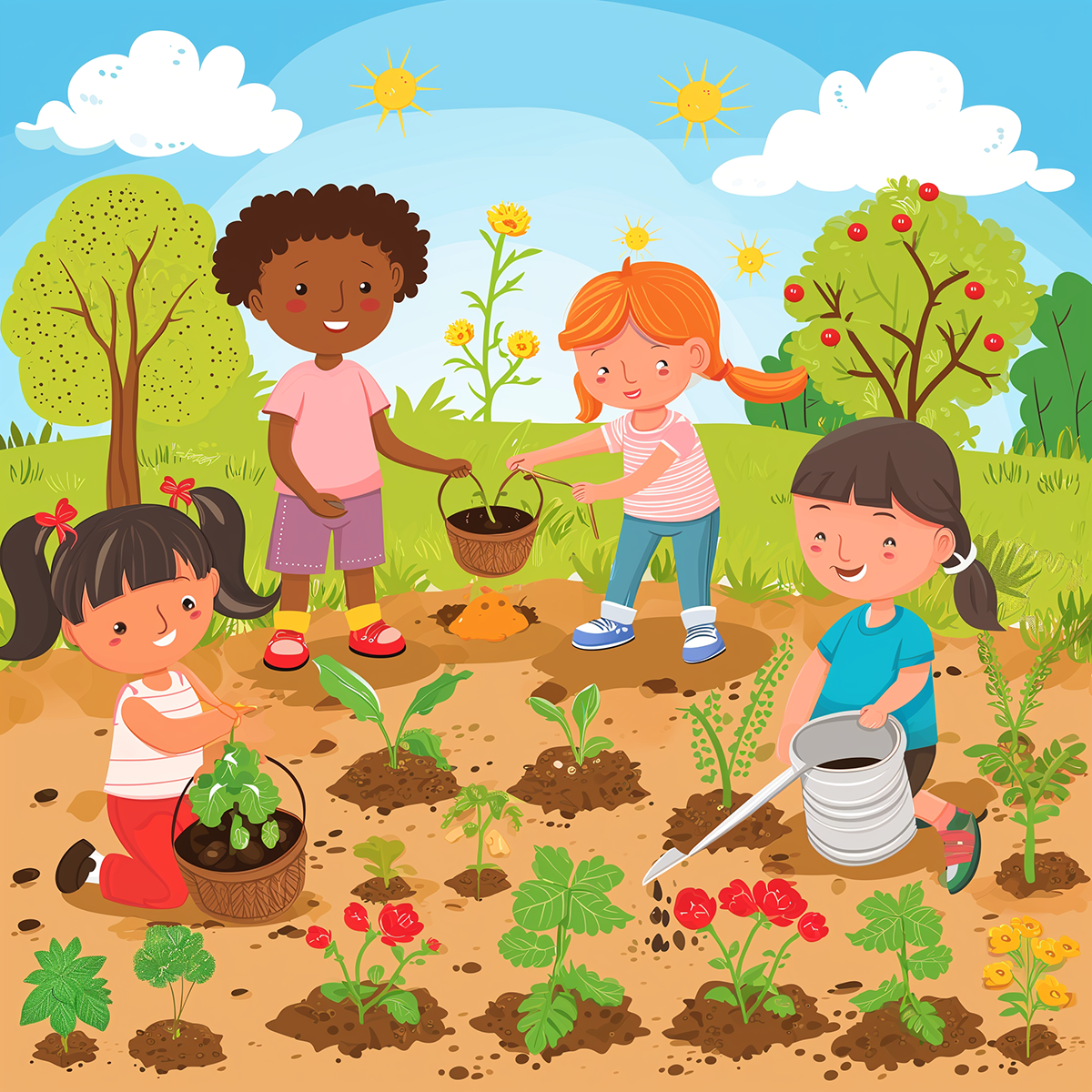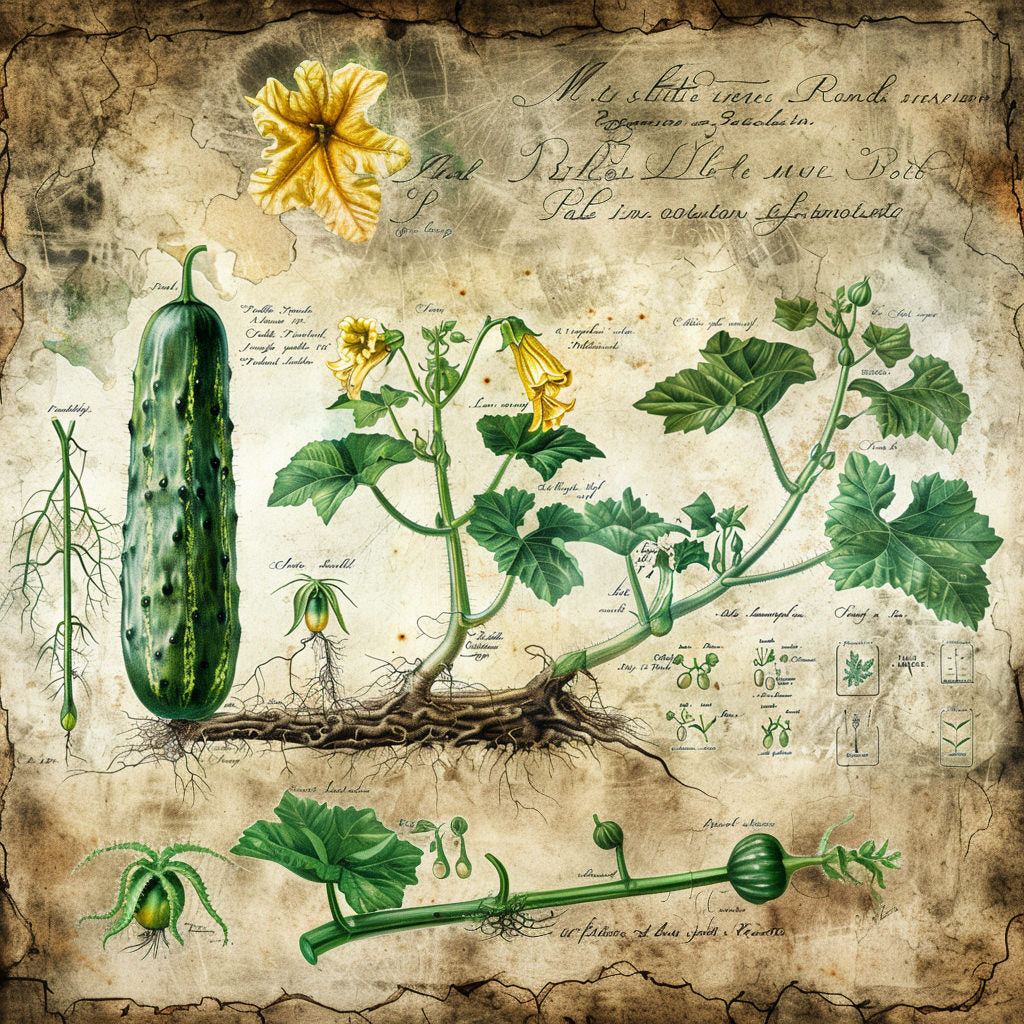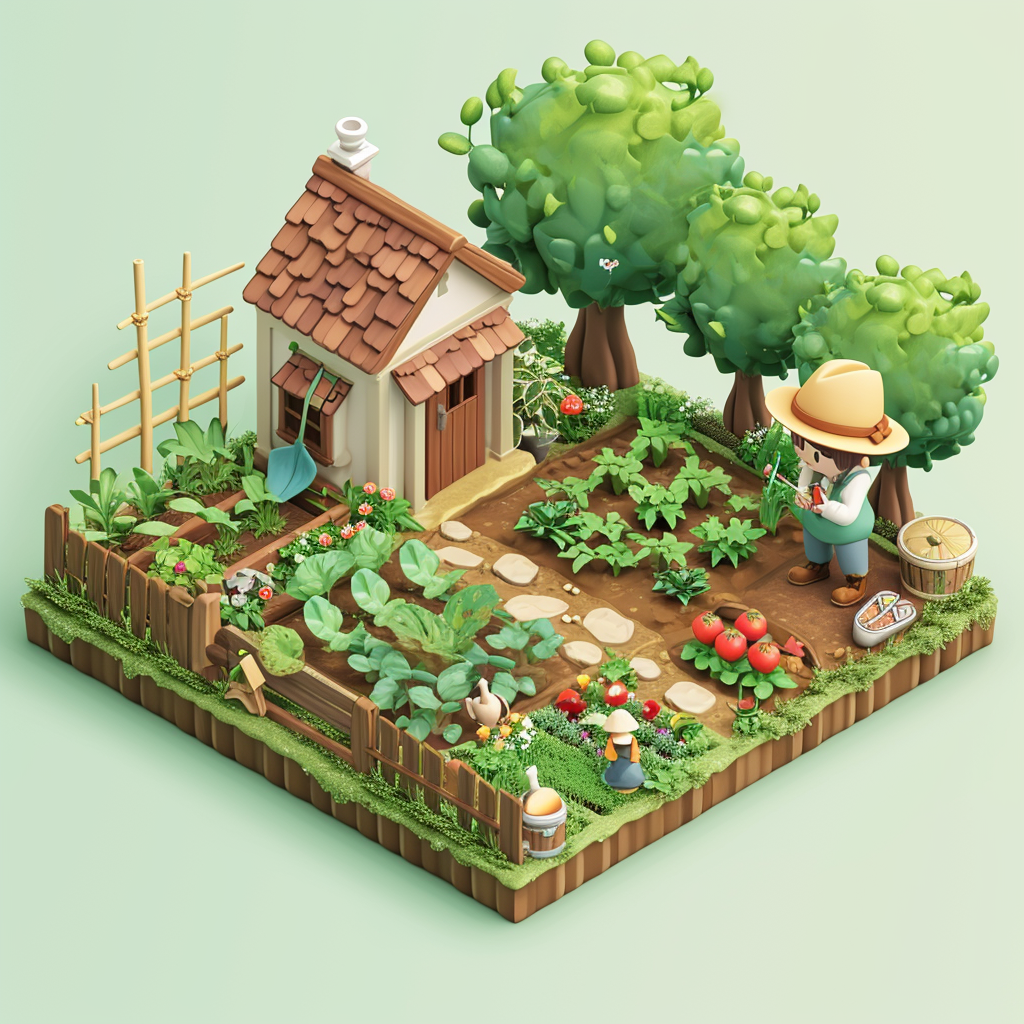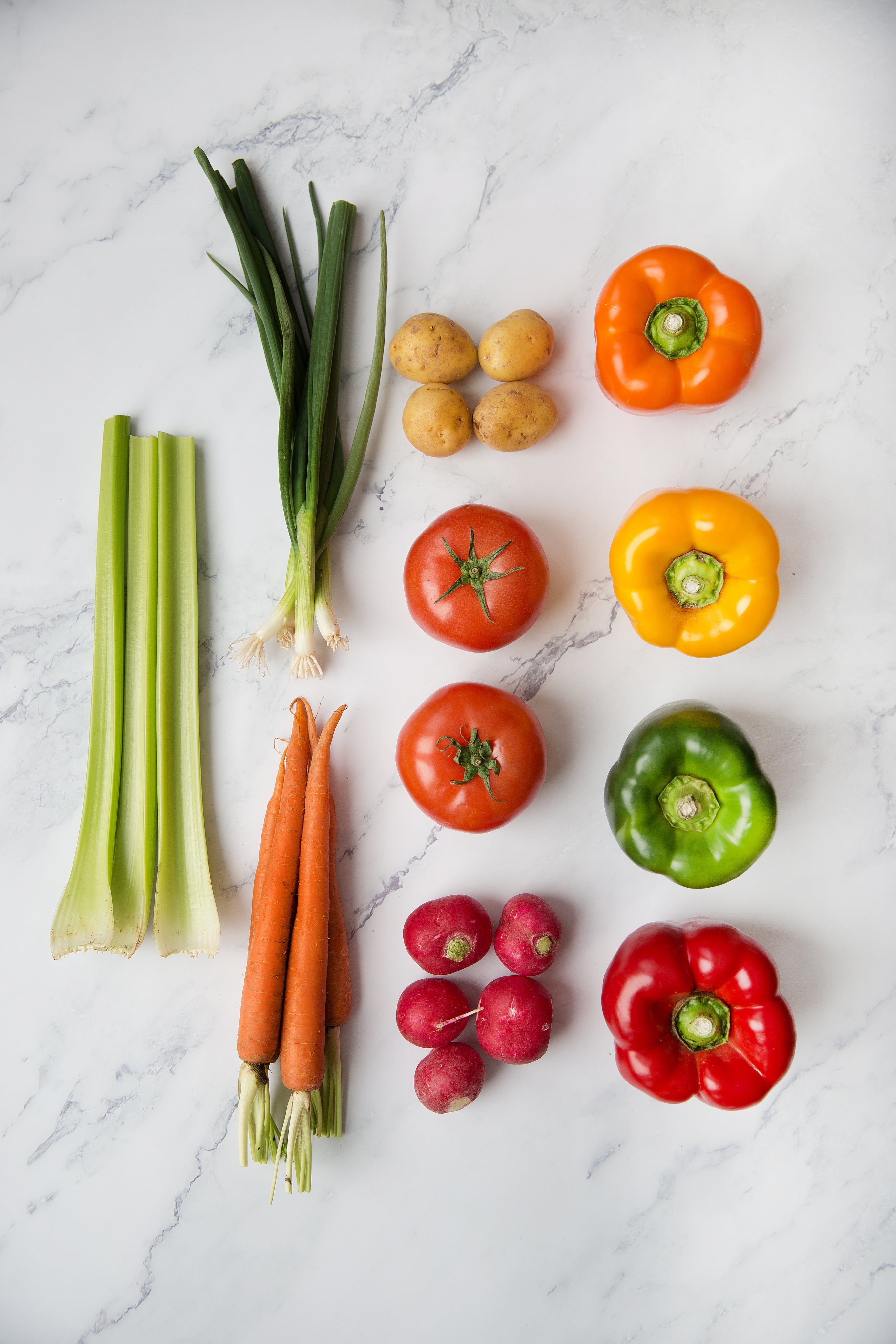There is hardly anything better than spending time in the garden with your children. Whether you have a large garden, a small bed or just a few flower pots on the balcony - gardening with children is not only entertaining, but also incredibly educational. It's an opportunity to create together, explore nature and enjoy fresh air at the same time.
In this post, we'll discover how you can make gardening an exciting and enriching experience for your children. From sowing small seeds to harvesting your own fruits and vegetables, gardening offers numerous opportunities to get children excited about the environment while teaching them important life skills.
Gardening can be more than just a hobby; it can become an adventure playground where children discover the wonders of nature while learning to take responsibility for living plants. So, grab your garden tools and let’s start a green adventure together!
Why gardening is good for children

Gardening is a fantastic way to teach children valuable lessons about nature, science and life itself. Here are some of the many benefits of gardening for children:
- Education of Patience and Observation: In the age of instant gratification, gardening teaches children to be patient. Plants don't grow overnight, and children learn to observe and appreciate the progress of their plants over days, weeks, and even months.
- Responsibility: Taking care of plants requires responsibility. Children learn to water regularly, pull weeds and watch out for pests. These tasks help them develop a sense of responsibility and the satisfaction that comes with caring for a living being.
- Science Learning: Gardening is a hands-on way to teach science concepts. Children learn about photosynthesis, the water cycle, insects and the role they play in our ecosystem.
- Healthy eating: When children grow vegetables and fruit themselves, they are more likely to develop a preference for healthy eating. Harvesting and eating your own produce can be a powerful motivator to make healthier food choices.
- Creativity and problem solving: Every garden presents unique challenges. Children learn to think creatively and find solutions to problems such as lack of space, pests or plant diseases.
- Connecting with nature: Gardening helps children develop a relationship with nature and develop an awareness of the environment. This is an important basis for an environmentally conscious life.
Through gardening, children learn not only about the world around them, but also about themselves. They develop self-confidence and pride in what they have created with their own hands.
Age-appropriate garden activities

Gardening can be an enriching experience for children of all ages. It is important to choose activities that are appropriate for the child's age and abilities. Here are some ideas for garden activities suitable for different ages:
For the very little ones
- Planting seeds in pots: Have them plant large seeds like beans or sunflowers in small pots. This activity promotes fine motor skills and an understanding of growth processes.
- Give Water: Children love playing with water. Watering the plants can be a fun and responsible task for them.
Kindergarten age
- Create your own small bed: Children of this age can tend a small bed or container garden with easy-to-care for plants such as radishes, lettuce or marigolds.
- Observe insects: Take the opportunity to talk to them about the role of insects in the garden and encourage them to observe and protect these little helpers.
Primary school age
- Learn to Compost: Older children can learn how compost is made and how it contributes to garden health.
- Science Projects: You can do simple experiments like observing growth in different conditions or collecting and identifying leaves and insects.
teenager
- Planning and design: Teenagers can be actively involved in the planning and design of the garden. They can learn how to choose plants according to their needs and the aesthetics of the garden.
- Advanced Projects: You could get involved in more advanced projects like building a raised bed or a small greenhouse facility.
Adapting garden activities to the child's age ensures that they not only have fun, but also learn something valuable and participate actively.
Safety in the garden

Gardening is a wonderful activity for children, but safety should always come first. Here are some advanced tips to ensure a safe gardening experience for children:
- Child-safe garden tools: Choose special, child-friendly garden tools that are easy and safe to use. Sharp and heavy tools should always be used under supervision and otherwise stored safely.
- Protective clothing: Encourage children to wear gloves to protect their hands from thorns, sharp edges, and rough materials. In sunny weather, a hat, sunglasses and sunscreen are important to protect from UV rays.
- Handling plants and substances: Be aware of the plants in your garden. Avoid poisonous plants and use natural, child-friendly fertilizers and pesticides. Explain to the children that they should not eat anything from the garden without asking first.
- Make water safe: If you have a pond or pool of water, provide appropriate safety measures, such as fences or covers, to minimize the risk of drowning. Children should always be supervised around water.
- Teach basic safety rules: Teach children how to use garden tools safely and teach them that they should not pull on or eat plants without asking first.
- Handling Insects and Animals: Teach children how to safely handle insects and other animals in the garden. Explain to them that while some insects, such as bees, can be useful, they can also be dangerous.
- First Aid: Have a first aid kit ready and be prepared for minor accidents. It is important that children know where they can get help if needed.
By following these safety tips and sharing them with your children, you will create a safe and enjoyable environment for gardening adventures that are fun and educational.
Learning projects in the garden

Gardening offers children a wealth of learning opportunities. Here are some advanced ideas for educational gardening projects that are fun and stimulate children's curiosity:
- A butterfly garden: Design an area in the garden that attracts butterflies. Plant butterfly-friendly flowers and herbs like lavender, sage, and marigolds. Children can observe how butterflies pollinate plants and learn why they are important to the ecosystem. Supplement the project with books and materials about butterflies and their life cycle.
- A Mini Vegetable Garden: Let the kids create their own little vegetable garden. You can sow, care for and harvest simple vegetables such as tomatoes, radishes and peas. This project gives you insights into the origins of our food and the importance of sustainable agriculture.
- Observation of growth: Keep a garden diary in which you document the growth of the plants. Children can add photographs, drawings and notes. This journal will not only develop observation skills but also create valuable memories.
- Recycling in the Garden: Use recycled materials for garden projects. For example, old yogurt cups can be used as plant pots or toilet paper rolls for sowing. Children learn the importance of recycling and the joy of creative design.
- Weather observation: Use the garden to study the weather and its effects. Children can learn how different weather conditions affect the growth of plants and how to care for the garden accordingly.
- Plant science: Simple projects in which children learn about different types of plants, name their parts and understand their functions promote basic biological knowledge.
These projects are not only educational but also strengthen the bond between parents and children. They offer a perfect opportunity to learn, grow and discover the wonders of nature together.
Joint garden projects

Gardening together provides a fantastic opportunity to spend time together as a family and create something together. Here are some ideas for garden projects that are particularly suitable to do with children:
- Creating a flower bed: Choose different types of flowers together and plan a colorful bed. This project is not only aesthetically valuable, but also provides an opportunity to talk about the importance of bees and other pollinators. Children learn how to arrange, care for and allow plants to thrive.
- Building a bird house or insect hotel: A practical project that supports local wildlife. By building a bird house or insect hotel, children can learn basic craft skills while learning more about the needs and habits of birds and insects.
- Making Plant Signs: A creative and educational activity that teaches children to identify the different plants in your garden. You can paint or make signs and then place them next to the corresponding plants.
- Cultivating an Herb Garden: An herb garden is a manageable and fragrant project that teaches children how to plant, care for, and harvest herbs. They can also learn how to use these herbs in the kitchen.
- Creating a Compost Pile: An excellent project to teach children about the cycles of nature and the importance of recycling. Together you can learn how kitchen and garden waste becomes valuable fertilizer.
- A Vegetable Garden: Creating a vegetable garden is a particularly rewarding project. Children can not only learn how vegetables grow, but also experience the joy of growing and harvesting their own food.
These projects not only strengthen the bond within the family, but also promote children's sense of responsibility, creativity and environmental awareness. They offer a perfect opportunity to learn, grow and enjoy nature together.






